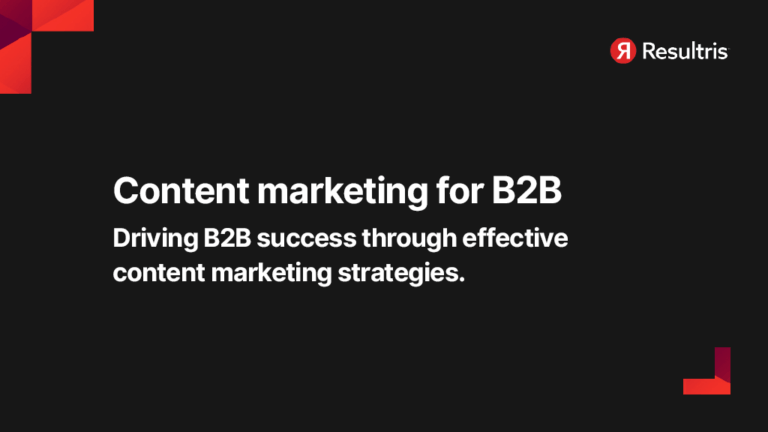

Written by: Tim Eisenhauer
Last updated:

In the B2B world, content marketing has become a powerful strategy for driving business growth, establishing thought leadership, and nurturing long-term customer relationships. This comprehensive guide will explore how B2B companies can leverage content marketing to connect with their target audience, generate qualified leads, and drive conversions.
Content marketing is instrumental in the B2B space, helping companies establish trust, credibility, and brand authority. By creating valuable and insightful content, B2B companies can position themselves as industry thought leaders, build relationships with potential customers, and differentiate themselves from competitors.
Setting clear and measurable goals is essential for developing an effective content marketing strategy in the B2B realm. By aligning content marketing goals with business objectives, B2B companies can ensure that their content efforts contribute directly to overall success.
Let Resultris help! Our expert team can simplify the process and guide your path to effective content marketing.
Creating valuable and compelling content is at the core of a successful B2B content marketing strategy. By understanding the unique needs and interests of the target audience, B2B companies can craft content that resonates and drives engagement.
Creating great content is only half the battle; effectively distributing and promoting it is equally important. B2B companies need to leverage various channels and strategies to reach their target audience and maximize content exposure.
In the B2B landscape, content marketing has emerged as a powerful strategy for establishing thought leadership, nurturing relationships, and driving conversions. By understanding the role of content marketing in B2B, setting clear goals, creating compelling content, and implementing effective distribution and promotion strategies, companies can unlock new opportunities for success. Embrace the potential of content marketing and take your B2B business to new heights.




